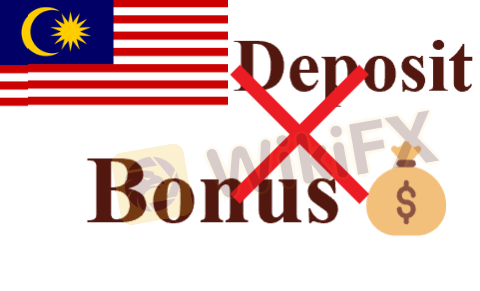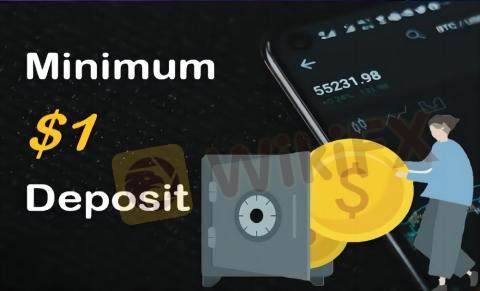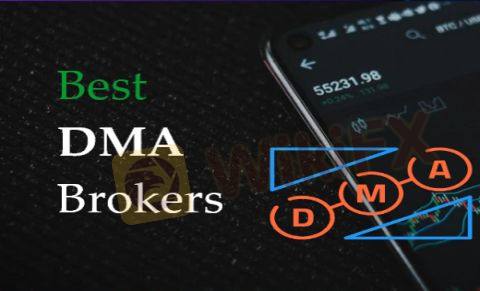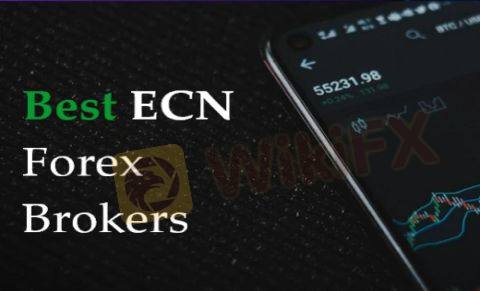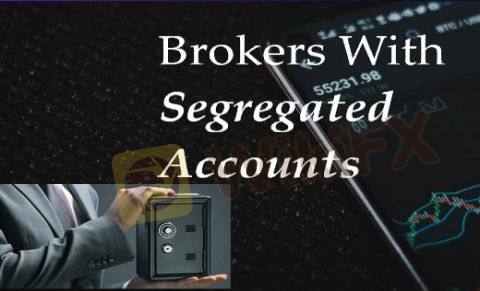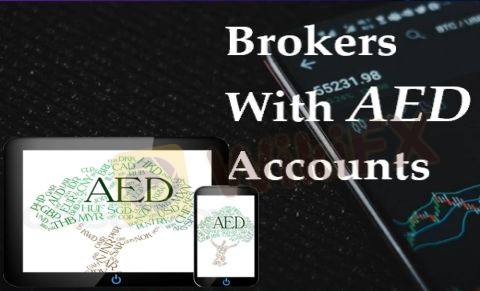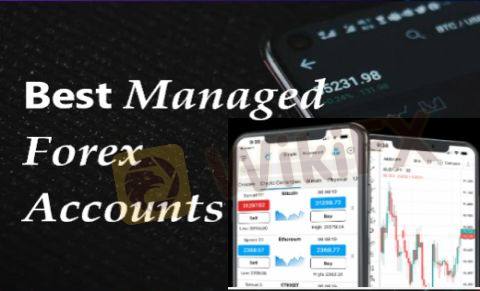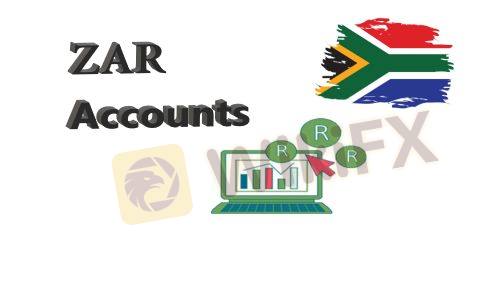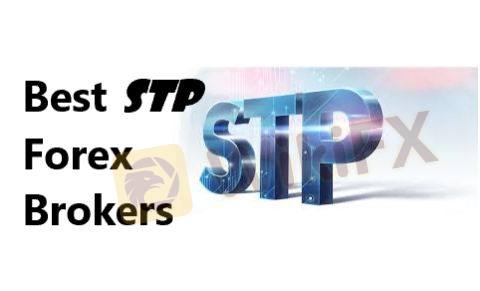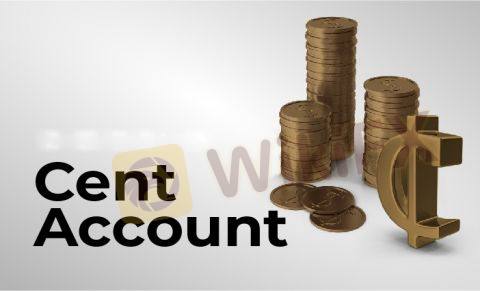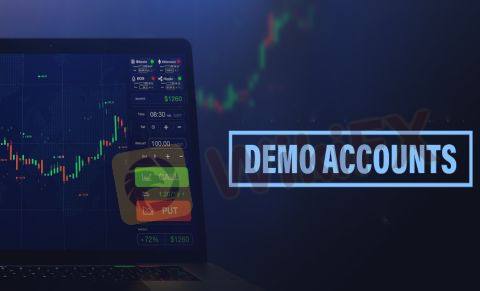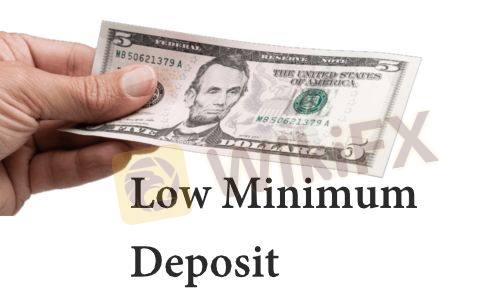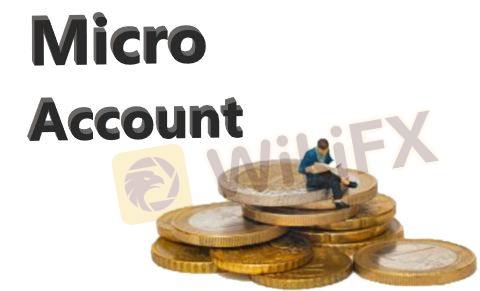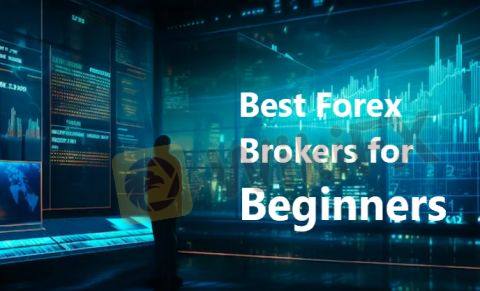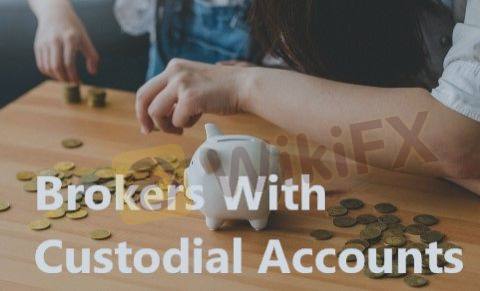To cover the costs of setting up an account and ensuring traders have adequate cash to open trades in their chosen market, online brokers need an upfront deposit. Minimum initial capitals required by various brokers vary from high several thousand dollars to as low as $1. Low-minimum-deposit brokers are especially ideal for new traders, as they provide rapid and easy entry to the financial markets. Since the forex market is volatile and full of risks, trading currencies with low deposits can keep risks low, which means it is easier for traders to test a real trading account before injecting a high amount of funds.
While capital requirements may differ, it is still critical to find a strictly regulated broker with powerful trading tools to help you succeed in forex trading. The following top 10 best forex brokers are great for all levels of traders but particular for forex beginners or novices who wish to step into the forex world with a low deposit funded.
10 Best Forex Brokers with Low Minimum Deposit
FCA-reguated broker with thousands of assets to choose from;
Offering a professional trading platform on both web and mobile devices.
An ASIC -regulated forex broker requires no minimum deposit , high leverage offered.
Low trading fees, MT4 and API trading for algorithmic traders.
Account opening is easy and digital with this well-regulated broker.
Spreads offered are among the tightest in the industry, 24X7 professional and responsive customer support.
more
Best Forex Brokers with Low Minimum Deposit Video
Comparison of the Best Forex Brokers with Low Minimum Deposit
Forex Broker
License
Minimum Spread
Maximum Leverage
Minimum Deposit
Open account
Details
Compare
10 Best Forex Brokers with Low Minimum Deposit Overall

| Regulated Country | Regulated Authority | Regulated Entity | License Type | License Number |
 |
FCA | CMC Markets UK plc | Market Making(MM) | 173730 |
 |
FCA | CMC Spreadbet Plc | Market Making(MM) | 170627 |
 |
FMA | CMC MARKETS NZ LIMITED | Market Making(MM) | 41187 |
 |
IIROC | CMC Markets Canada Inc. | Market Making(MM) | Unreleased |
 |
MAS | CMC MARKETS SINGAPORE PTE LTD | Retail Forex License | Unreleased |
CMC Markets is a brokerage firm established in 1989 and based in Australia. The company provides online trading services for a wide range of financial instruments, such as forex, commodities, and indices. CMC Markets is known for its user-friendly trading platforms and is regulated by financial authorities in multiple countries, making it a popular choice for retail traders and investors.
Minimum Deposit: $0

| Regulated Country | Regulated Authority | Regulated Entity | License Type | License Number |
 |
ASIC | TRADING POINT OF FINANCIAL INSTRUMENTS PTY LTD | Market Making(MM) | 443670 |
 |
CYSEC | Trading Point Of Financial Instruments Ltd | Market Making(MM) | 120/10 |
 |
FSC | XM GLOBAL LIMITED | Retail Forex License | 000261/397 |
 |
DFSA | Trading Point MENA Limited | Retail Forex License | F003484 |
XM was established in 2009 and is a CFD and forex broker operating online. With its headquarters in Cyprus and under the watchful eye of the Cyprus Securities and Exchange Commission (CySEC), this firm is a respected member of the brokerage community. XM provides trading services to customers all around the world and provides access to a wide variety of trading instruments, such as foreign exchange, commodities, equities, and indices.
Minimum Deposit: $5

| Regulated Country | Regulated Authority | Regulated Entity | License Type | License Number |
 |
ASIC | AXICORP FINANCIAL SERVICES PTY LTD | Market Making(MM) | 318232 |
 |
FCA | Axi Financial Services (UK) Limited | Market Making(MM) | 466201 |
 |
FMA | AXICORP FINANCIAL SERVICES PTY LTD | Straight Through Processing(STP) | 518226 |
 |
DFSA | AxiCorp Financial Services Pty Ltd | Retail Forex License | F003742 |
Axi (formerly AxiTrader) offers a bunch of over 220 trading options, forex, CFDs for stocks, indices, commodities, and even cryptocurrencies. They start at a $0 deposit, offer competitive spreads from 0.0 pips on major currencies, and here is the cool part: using ECN execution for direct market orders. As for the platform, it's none other than the legendary MetaTrader 4. With a touch of pride, they claim to have served more than 600,000 traders across 100 countries.
Minimum Deposit: $0

| Regulated Country | Regulated Authority | Regulated Entity | License Type | License Number |
 |
FCA | Exness (UK) Ltd | Market Making(MM) | 730729a |
 |
CYSEC | Exness (Cy) Ltd | Market Making(MM) | 178/12 |
 |
FSCA | EXNESS ZA (PTY) LTD | Retail Forex License | 51024 |
 |
FSA | Exness (SC) Ltd | Retail Forex License | SD025 |
Exness is an online forex and CFD broker that was established in 2008. Registered in Cyprus, this company has expanded its reach to become a well-known brokerage firm, providing trading services to clients around the world. Exness is renowned for its intuitive trading platforms and extensive selection of financial instruments, which have made it a favoured option for traders in the foreign exchange and financial markets.
Minimum Deposit: $10

| Regulated Country | Regulated Authority | Regulated Entity | License Type | License Number |
 |
ASIC | ADMIRALS AU PTY LTD | Market Making(MM) | 410681 |
 |
FCA | Admiral Markets UK Ltd | Market Making(MM) | 595450 |
 |
CYSEC | Admiral Markets Cyprus Ltd | Market Making(MM) | 201/13 |
 |
FSA | Admirals SC Ltd | Retail Forex License | SD073 |
Established in 2001, Admiral Markets is a globally-recognized forex and CFD broker regulated by the UK's Financial Conduct Authority (FCA). The company also operates in Australia under Admirals AU Pty Ltd, holding Australian Financial Services Licence number 410681, regulated by the Australian Securities and Investments Commission (ASIC). It offers a comprehensive suite of trading products, including forex, indices, commodities, stocks, bonds and ETFs. With trading platforms like MetaTrader 4 and 5, and WebTrader, Admiral Markets stands out for its competitive spreads, prompt execution and exceptional customer support.
Minimum Deposit: $100

| Regulated Country | Regulated Authority | Regulated Entity | License Type | License Number |
 |
CYSEC | HF Markets (Europe) Ltd | Market Making(MM) | 183/12 |
 |
FCA | HF Markets (UK) Limited | Straight Through Processing(STP) | 801701 |
 |
DFSA | HF Markets (DIFC) Limited | Retail Forex License | F004885 |
 |
FSA | HF Markets (Seychelles) Ltd | Retail Forex License | SD015 |
 |
CNMV | HF MARKETS (EUROPE) LTD | Retail Forex License | 3427 |
HFM (formerly HotForex) was launched in 2010 and is now a reputable online forex and CFD broker. The Cyprus-based company has become well-known in the financial sector for its extensive selection of trading products and simple-to-navigate interfaces, making it a favourite among traders of all experience levels. HFM is a global trading firm that is regulated by a number of governing bodies to protect its customers' money.
Minimum Deposit: $5

| Regulated Country | Regulated Authority | Regulated Entity | License Type | License Number |
 |
ASIC | ETORO AUS CAPITAL PTY LTD | Market Making(MM) | 491139 |
 |
CYSEC | Etoro (Europe) Limited | Market Making(MM) | 109/10 |
 |
FCA | eToro(UK)Ltd | Straight Through Processing(STP) | 583263 |
Incorporated in 2007, eToro is a social trading platform and multi-asset broker. It's based in Cyprus and has become well-known for its cutting-edge trading platform, which lets users buy and sell stocks, cryptocurrencies, and commodities, and which also includes a social networking feature that lets them track the investments of other traders and mimic their moves. By fusing together the worlds of online trading and investing with those of social networking, eToro has had a profound impact.
Minimum Deposit: $10

| Regulated Country | Regulated Authority | Regulated Entity | License Type | License Number |
 |
CYSEC | BDSwiss Holding Ltd | Market Making(MM) | 199/13 |
 |
FSA | BDS Ltd | Retail Forex License | SD047 |
BDSwiss is a prominent online brokerage that was established in 2012 and has its headquarters in Limassol, Cyprus. With a wide range of financial assets available, BDSwiss caters to over 1 million clients worldwide, offering access to forex, crypto, stocks, indices, and commodities. Traders have access to a range of trading platforms, including the popular MetaTrader 4 and MetaTrader 5, as well as the BDSwiss WebTrader, mobile apps, and advanced PowerTrader for desktop trading. BDSwiss is renowned for its competitive pricing, diverse account options, swift execution speeds, and round-the-clock multilingual customer support.
Minimum Deposit: $10

| Regulated Country | Regulated Authority | Regulated Entity | License Type | License Number |
 |
CYSEC | Forextime Ltd | Market Making(MM) | 185/12 |
 |
FCA | Exinity UK Ltd | Straight Through Processing(STP) | 777911 |
 |
FSC | EXINITY LIMITED | Retail Forex License | C113012295 |
FXTM is a reputable global online brokerage that operates under the regulation of multiple jurisdictions worldwide, such as the UK, Cyprus, South Africa, and Mauritius. Established in 2011 in Limassol, Cyprus, FXTM has experienced significant growth and currently caters to over 2 million accounts in over 180 countries. FXTM offers a wide range of tradable instruments, giving retail traders, institutions, and introducers access to over 250 options. These include forex, stocks, indices, commodities, cryptocurrencies, and ETFs. Take advantage of leverage up to 1:1000, enjoy competitive spreads, and experience fast execution on the popular MetaTrader 4 and MetaTrader 5 platforms. FXTM is known for its dedication to educating traders, providing customer support in multiple languages, and offering a wide range of trading resources to empower traders with the confidence to trade. FXTM has established itself as a reputable global broker in just ten years of operation, thanks to its transparent pricing, tight spreads, and advanced trading tools.
Minimum Deposit: $10

| Regulated Country | Regulated Authority | Regulated Entity | License Type | License Number |
 |
FCA | Zeal Capital Market (UK) Limited | Straight Through Processing(STP) | 768451 |
 |
FSA | Zeal Capital Market (Seychelles) Limited | Retail Forex License | SD027 |
ZFX, operated by Zeal Capital Market Limited, is a forex and CFD broker established in 2010 and based in the United Kingdom. ZFX provides a wide range of trading instruments, such as Forex currency pairs, commodities, indices, and cryptocurrencies, on the well-known trading platforms, MetaTrader 4 and MetaTrader 5.
Minimum Deposit: $50
Which Forex Broker Offer the Lowest Spreads?
Nowadays, the vast majority of brokers will not charge commissions and will instead profit from wider spreads. Therefore, wider spreads mean high trading costs. Many forex brokers hype that they offer highly competitive spreads to attract brokers.

There are also some ranking lists of the lowest spreads forex brokers on the internet. Here we find a relatively trustworthy one for your reference:
Pepperstonerequires no minimum initial deposit, offers floating spreads, with average EUR/USD spreads as low as 0.09 pips.
IC Markets, requires a minimum deposit of $0, offering floating spreads, with average EUR/USD spreads as low as 0.10 pips.
XM, requires a minimum deposit of $5, offering floating spreads, with average EUR/USD spreads as low as 0.10 pips.
FxPro, requires a minimum deposit of $100, offering Floating/Fixed spreads, with average EUR/USD spreads as low as 0.45 pips.
FBS, requires a minimum deposit of $1, offering Floating/Fixed spreads with an average EURUSD spread of 0.50 pips.
FXTM, requires a minimum deposit of $10, offering Floating spreads with average EURUSD spreads of 0.10 pips.
The Differences Between Various Forex Accounts?
Many forex brokers offer multiple trading accounts for traders to choose from, then here comes the problem: how to choose a forex account? Trading accounts varies typically based on the trade size you want to make, so different accounts have a different minimum deposit amount ($100 or even less). The main forex account types are as follow:
Mini/Micro Accounts-suitable for traders with a small number of funds and can help them control risk.
Standard Accounts-they usually requires a minimum initial deposit of around $100-$500, chosen by most regular traders.
VIP/Professional Accounts-they are suitable for professional traders or institutions. VIP accounts often have a high minimum deposit requirement (about $10,000) and allow regular quantities to be traded. These accounts are often ECN accounts too.
Swap-free Accounts-also called Islamic accounts, for they are often used by Muslim traders who cannot incur interest fees due to their religious beliefs.
How to judge if a forex broker is reliable?
Choosing a broker that is simple to open an account with, requires a relatively low amount of capital deposit, offers generous leverage & advanced trading platform seems quite easy. To find a reliable broker, however, is a duanting task.
Here are several criteria to assess the reliability of a broker:
Regulation-This is the most important thing. Some top regulatory jurisdictions include ASIC (Australia), FCA (UK), CFTC /NFA (US)-any of these can render confidence that the broker is legit.
Trading Platforms-Industry-Recognized trading platform like MT4, MT5, cTrader, user-friendly interface, advanced charts, etc.
Minimum Deposit-Usually a lower amount.
Ease of Withdrawal-You can withdraw your deposited funds quickly, easily, and without any fees.
Spreads and commission-Not too wide.
Customer Support-You can contact this broker anytime anywhere if something goes wrong.
How to Check Forex Regulation?
If you want to investigate regulation information (including regulatory license and regulation status) on a specific firm, individual, or pool, directly go to regulatory register websites. Here we take NFA as an example, firstly, you should visit NFA Background Affiliation Status Information Center (BASIC). The following page comes:

Next, let us type the “Forex.com” (the famous forex broker in the United States even in the world) in the search bar, here comes the result: Forex.com is indeed an NFA-regulated broker. You can also input NFA ID to investigate if this broker is regulated or not.

If a forex broker fails to display its detailed regulatory license number, it is probably an illegal forex broker that traders should stay away from. Nowadays, many forex brokers love to clone and pretend to be regulated, therefore, traders should first come to regulatory authorities websites to check if its regulatory number is true when choosing forex brokers.
Can I Use $100 to Trade Forex?
Yes, you can use $100 to open a forex account and start trading in the forex market, as most legit brokers require a relatively low initial capital requirement to attract traders to trade forex on their platforms.
It is not lot of money, so certain potential risk/reward will be limited. You can deposit this $100 into your trading account as a margin by applying the leverage of 100:1 (avoid excessive leverage in case of fund losses), for example.
Margin trading means your broker gives you $100 for every $1, so if your account trading balance is $100, you can trade $10,000 in total. Leverage in forex trading can magnify your little deposited funds allowing you to trade larger value, however, it also increase your potential risks greatly as well.
Which Forex Broker Charges the Lowest Spreads And Commissions?
Forex brokers typically make a profit or get compensated in two ways:
spreads (the difference between bid-ask prices), and some additional commission fees such as fees for trading platforms, monthly fees for dormant accounts.
As per several ranking lists, Pepperstone ranks in the first place offering the tightest spreads and no commission.
It provides low average FX spreads from 0.6 pips for the EUR/USD pair with no commissions in the standard accounts, much lower than the industry standard of 1 to 1.5 pips on this pair.
Pepperstones Razor account offers spreads from 0.0-0.3 pip, plus a commission of EUR5.23 round turn per 100K traded.
How To Calculate Forex Trading Costs?
The trading costs in forex trading markets include several major segments: forex spreads, commissions & other fees, slippage.
When it comes to forex trading costs, the spreads (the difference between the bid and ask prices for a forex pair, for instance, if you are trading EUR/USD pair per lot with a spread of 0.6 pips, then your spread costs is $6) is typically the most well-known expense.
Apart from forex spreads, brokers may also charge other commissions and fees. Trading commissions come from the cost per traded side (opening and closing a position) or per lot traded (commissions based on trading volume and charged for each lot traded).
Other fees include inactivity fees and trading software fees. Slippage does not often occur, and typically, unregulated and illegal brokers make profits from slippage.
How to Choose Forex Accounts?
Different accounts with different. Before opening up a trading account, you should figure out the following questions:
How much do you want to deposit?You should keep in mind that it is not wise to trade with money you cannot afford to lose.
What is your risk tolerance?If you are a conservative trader, you may choose a micro account you can trade micro-lots. But if you want to trade more aggressively, you may better choose a standard account.
Do you need any advanced tools?Many forex brokers offer their best trading tools to their professional clients, which may include innovative news analysis or access to an extensive range of indicators.
Once you can define what kind of trader you are, your trading goals, and your risk tolerance, you can know what account suits you most.
How Does WikiFX Give Forex Brokers Scores?
To give a forex broker an unbiased and fair score, WikiFX has made great efforts and the result comes down to the FIVE aspects: License, Regulatory, Business, Trading Software, and Risk Management. Every aspect comes with a maximum of 10 credits.

LicenseTo verify whether the license of a broker is true or not, WikiFX arranges a field survey team to conduct field interview and shooting, to ensure a brokers information is authentic.
RegulatoryThe more strictly regulated a forex broker is, the higher scores it gets. For instance, AvaTrade is multi-regulated by three tier-1 regulatory bodies-ASIC, FCA, FSA, with high trust, thus it gets 9.5 in this aspect.
BusinessThis part mainly involves in trading instruments, trading costs, customer support, as well as user comments. If a broker legally operate forex trading with competitive trading costs, professional customer support, a diversified trading instruments as well as positive client reviews, it will be recognized as a high-score player.
Trading SoftwareIf a broker use or offer a legal copy of some leading trading platforms, like MT4, MT5, cTrader and more, it will get higher credits. Again, AvaTrade offers MT4, MT5 Dupli Trade, ZuluTrade, and therefore, it get a high score of 9.5.
Risk ManagementThe WikiFX risk-control team and the FXeye cloud system monitor forex brokers' order execution index, customer funds static index, global public opinion index, liquidity index, credit index, and more than 40 factors in real-time to elevate a fair score.
How to Choose a Most Suitable Broker?
Success in forex trading, as in any other kind of investment, comes down to making the right selections continuously. The first and most crucial step for every forex investor who wants to participate in the forex market is to find a suitable broker partner. Here are some key points you should pay attention to:

Regulation
Regulation is typically the first indication of a trustworthy and dependable broker. Regulated brokers are required to keep client funds into segregated bank accounts, separating from their operating funds to protect clients.
Trading Conditions
Good trading conditions will increase your chances of making money in the market, while unfavorable trading conditions may expose you to market hazards. A good broker will offer different accounts to meet the personalized needs of various traders and requires a much lower minimum initial capital amount. Additionally, keep in mind that Forex trading is a business, and you must be mindful of your expenses.
Trading Platforms
Trading platforms serve as your entry point into the FX market. They let you buy and sell instruments. In most cases, reliable forex broker operates classics, such as MT4, MT5, or both. Investors should take extra vigilance when dealing with less reputable or unregulated brokers who use proprietary trading platforms.
Deposit & Withdrawal
A reliable forex broker will always make it easy for you to withdraw your deposited funds.
Some other perspectives you should also take note are the background, market coverage rate of the broker as well as educational tools offered by this broker.
Forex Trading Knowledge Questions and Answers
What Are the Advantages of Trading with Small capitals?
Over the recent years, a shift in the forex industry has led to the emergence of brokers offering significantly lower minimum deposits, some as low as $50 or $100, to initiate trading accounts. This transformation has effectively dismantled the barriers to entry for aspiring forex traders, making it far more accessible for individuals intrigued by financial trading.
These lower minimum deposits bring several advantages to new forex traders:
Reduced Trial and Error CostsStarting with a mere $50, novice traders can launch a micro lot account, minimizing their initial capital risk. This enables them to experiment with various strategies without the fear of significant losses.
Lower Risk ExposureWith a lower deposit requirement, beginners face considerably smaller potential losses on their trades. Losing $50 is far less daunting than a $500 loss for someone just entering the market.
Gentler Learning CurveNew traders can take their time understanding the intricacies of the market without the pressure to generate quick profits to cover high minimum costs.
Leverage AdvantageWhen trading with a broker offering high leverage, such as 1:500, a trader can open positions valued at $25,000 with just a $50 margin deposit. This opens the door to greater profit potential even with limited capital.
Swift Entry to TradingAspiring traders without substantial savings can initiate real trading promptly by choosing a broker with a $100 minimum deposit requirement, avoiding the need to accumulate capital for months before opening an account.
You Also Like

Best Forex Brokers for Beginners in Nigeria for 2024
Select the top forex brokers for beginners in Nigeria from many companies to ensure a safe trading environment.
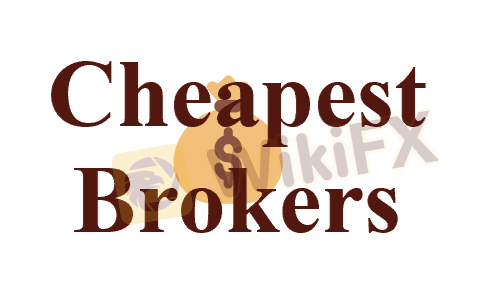
Cheapest Brokers 2024 | We List the Best Brokers with low fees
Slash forex trading costs: find the cheapest brokers, avoid hidden fees, and boost your returns!
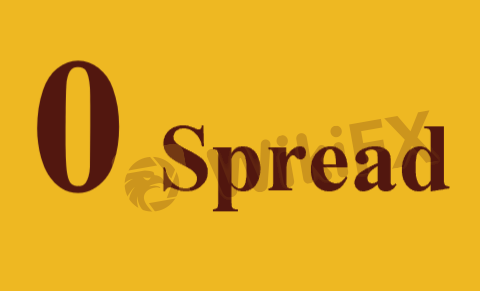
Best Zero Spread Forex Brokers in 2024
Dive into zero-spread forex trading: explore its perks, pitfalls, and discover top brokers to optimize your journey.
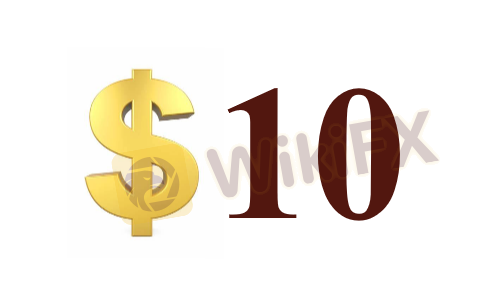
7 Best $10 Minimum Deposit Forex Brokers in 2024
Ultra-affordable Forex trading starts here! With only $10, join the Forex market with these seven champion brokers.


